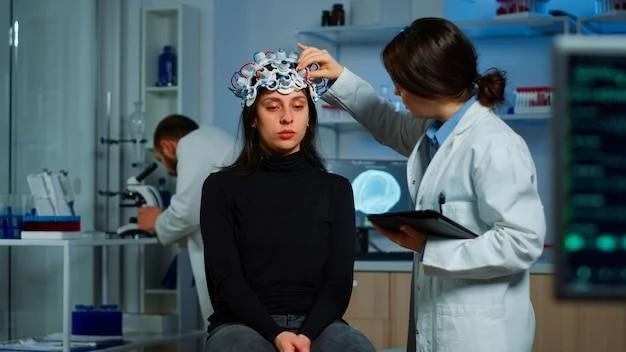Disease ౼ Epilepsy Mental Deterioration Finnish Type
Epilepsy Mental Deterioration Finnish Type is a rare brain disorder․ This article provides crucial information on understanding its symptoms, causes, diagnosis, treatment options, medication management, lifestyle changes, support systems, mental health considerations, research, coping strategies, prognosis, and conclusion․
I․ Introduction to Epilepsy Mental Deterioration Finnish Type
Epilepsy Mental Deterioration Finnish Type, also known as EPMDF, is a rare genetic disorder that affects brain function․ Individuals with EPMDF experience a combination of epilepsy and cognitive decline․ This condition is predominantly found in individuals of Finnish descent․ Understanding the complexities of EPMDF is crucial for proper management and care․ Throughout this article, we will delve into the symptoms, causes, diagnosis, treatment options, and various aspects related to EPMDF to equip readers with comprehensive knowledge for dealing with this challenging condition․
II․ Understanding the Symptoms
Recognizing the symptoms of Epilepsy Mental Deterioration Finnish Type is essential for early intervention and management․ Common symptoms include recurrent seizures, cognitive decline, developmental delays, speech difficulties, movement disorders, and behavioral changes․ Individuals with EPMDF may also experience vision problems, muscle weakness, and coordination issues․ It is important to consult a healthcare professional if you or a loved one exhibit any of these symptoms to receive a timely diagnosis and appropriate treatment․

III; Causes of the Disease
Epilepsy Mental Deterioration Finnish Type is primarily caused by mutations in the BRAT1 gene․ These genetic mutations disrupt normal brain function٫ leading to the onset of epilepsy and cognitive decline․ The inheritance pattern of EPMDF is autosomal recessive٫ meaning individuals must inherit two copies of the mutated gene (one from each parent) to develop the disorder․ Understanding the genetic basis of EPMDF is crucial for genetic counseling and family planning․ If there is a family history of EPMDF or related conditions٫ genetic testing and counseling can help assess the risk of passing on the mutated gene to future generations․
IV․ Diagnosis Process
Diagnosing Epilepsy Mental Deterioration Finnish Type involves a comprehensive evaluation that may include genetic testing, neurological exams, imaging studies (MRI, CT scans), and cognitive assessments․ Genetic testing plays a key role in confirming the presence of mutations in the BRAT1 gene, which is characteristic of EPMDF․ Neurologists and genetic counselors collaborate to interpret test results and provide a definitive diagnosis․ It is crucial to seek medical attention from specialists familiar with rare genetic disorders like EPMDF for accurate diagnosis and appropriate treatment planning․
V․ Treatment Options
Managing Epilepsy Mental Deterioration Finnish Type requires a multidisciplinary approach; Treatment options aim to control seizures, address cognitive decline, and improve quality of life․ Antiseizure medications are commonly prescribed to manage epilepsy symptoms․ Cognitive therapies, speech therapy, and physical therapy may help address the cognitive and developmental aspects of EPMDF․ Additionally, ongoing monitoring and support from neurologists, genetic counselors, therapists, and other healthcare professionals are essential for personalized and effective treatment strategies tailored to the individual’s needs․
VI․ Medication Management
Medication management is a crucial aspect of treating Epilepsy Mental Deterioration Finnish Type․ Antiseizure medications are the cornerstone of managing epilepsy symptoms in individuals with EPMDF․ It is essential to adhere to the prescribed medication regimen as directed by a healthcare provider to effectively control seizures and minimize associated risks․ Regularly monitoring medication effectiveness and potential side effects is important to adjust the treatment plan as needed․ Open communication with healthcare professionals, including neurologists and pharmacists, can help optimize medication management and improve overall quality of life for individuals living with EPMDF․
VII․ Lifestyle Changes
Implementing lifestyle changes can complement medical treatment for Epilepsy Mental Deterioration Finnish Type․ Maintaining a consistent sleep schedule, managing stress levels, and engaging in regular physical activity can contribute to overall well-being․ For individuals with EPMDF, creating a safe environment at home and minimizing potential seizure triggers is essential․ Caregivers and family members should be educated on seizure first aid and safety precautions․ Healthy nutrition, hydration, and social support play vital roles in promoting the holistic health of individuals living with EPMDF․ Consult healthcare professionals for personalized lifestyle recommendations tailored to individual needs․
VIII․ Support Systems
Building a robust support system is crucial for individuals and families affected by Epilepsy Mental Deterioration Finnish Type․ Seek out support groups, online forums, and counseling services to connect with others facing similar challenges․ Caregivers may benefit from respite care services to prevent burnout and maintain their well-being․ Educate extended family members, teachers, and friends about EPMDF to foster understanding and empathy․ Utilize community resources, such as local organizations and advocacy groups, for information and assistance․ Remember, you are not alone in this journey, and accessing support systems can provide emotional, practical, and social support when navigating the complexities of EPMDF․
IX․ Mental Health Considerations
Managing the mental health aspects of Epilepsy Mental Deterioration Finnish Type is crucial for overall well-being․ Individuals with EPMDF and their caregivers may experience emotional challenges, including stress, anxiety, and feelings of isolation․ Seeking support from mental health professionals, psychologists, or counselors can provide coping strategies and emotional support․ Practice self-care techniques such as mindfulness, relaxation exercises, and creative outlets to promote mental wellness․ Open communication with healthcare providers about mental health concerns is vital for holistic care․ Remember, prioritizing mental health is an integral part of effectively managing the complexities of EPMDF․
X․ Research and Advances
Ongoing research plays a vital role in advancing our understanding and treatment of Epilepsy Mental Deterioration Finnish Type․ Researchers and healthcare professionals are continually exploring new genetic therapies, diagnostic techniques, and treatment modalities to improve outcomes for individuals with EPMDF․ Participating in clinical trials and supporting research initiatives can contribute to the development of innovative therapies and interventions․ Stay informed about the latest research findings and breakthroughs in the field of rare genetic disorders like EPMDF․ By remaining engaged and advocating for research advancements, you can help shape the future of care for individuals affected by EPMDF․
XI․ Coping Strategies
Developing effective coping strategies is essential for individuals and families navigating the challenges of Epilepsy Mental Deterioration Finnish Type․ Maintain open communication with healthcare providers and support networks to address concerns and seek guidance․ Engage in stress-reducing activities such as meditation, exercise, hobbies, and spending quality time with loved ones․ Keep a journal to track symptoms, emotions, and progress, fostering self-awareness and reflection․ Establish routines and prioritize self-care to promote resilience and well-being․ Remember to celebrate small victories and milestones along the way․ By implementing coping strategies tailored to your unique needs, you can navigate the complexities of EPMDF with strength and determination․
XII․ Prognosis and Outlook
Understanding the prognosis and outlook for Epilepsy Mental Deterioration Finnish Type is essential for setting realistic expectations and planning for the future․ The prognosis for individuals with EPMDF can vary depending on the severity of symptoms, early intervention, and individual response to treatment․ While EPMDF is a challenging condition, advances in research and personalized care offer hope for improved outcomes․ Collaboration with a multidisciplinary healthcare team can help optimize treatment strategies and enhance quality of life․ Stay informed, proactive, and engaged in managing EPMDF to navigate the journey with resilience and hope․ Remember, each individual’s experience with EPMDF is unique, and maintaining a positive outlook can make a significant difference in coping with the challenges ahead․
XIII․ Conclusion
In conclusion, Epilepsy Mental Deterioration Finnish Type presents complex challenges for individuals and families, requiring a holistic approach to management․ By understanding the symptoms, causes, diagnosis, and treatment options, individuals can navigate the complexities of EPMDF with knowledge and empowerment․ Embracing lifestyle changes, accessing support systems, prioritizing mental health, and engaging in coping strategies are essential components of care․ Stay informed about research advancements, advocate for innovative therapies, and participate in clinical trials to contribute to the progress in managing EPMDF․ With resilience, determination, and a supportive network, individuals affected by EPMDF can face the future with hope and strength․
